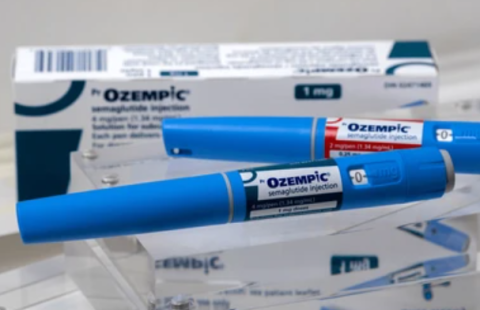ALBAWABA In recent years, the quest for effective and sustainable weight management solutions has led researchers to explore unconventional avenues. One such intriguing possibility is the role of sunlight in fat metabolism.
A recent study has shed light on the potential of regular sunlight exposure as a "natural fat burner," offering insights into its mechanisms and implications for obesity treatment.
This article explores the findings of this study and the implications for harnessing sunlight in the battle against obesity.
The study, published in the renowned British newspaper "Daily Mail," unveils the fascinating relationship between sunlight exposure and fat metabolism.
Conducted on mice, the research demonstrates that regular exposure to sunlight triggers a cascade of physiological responses that influence fat storage and energy expenditure.
One of the central findings of the study is that ultraviolet (UV) radiation, a component of sunlight, plays a pivotal role in modulating hunger-controlling hormones in the body.
By reducing these hormones, sunlight exposure stimulates appetite, potentially leading individuals to consume more calories.
However, the study also highlights a counterbalancing effect: the simultaneous increase in stress hormones induced by sunlight exposure.
While stress hormones typically have negative connotations, in this context, they appear to enhance fat breakdown, thereby preventing weight gain.
Moreover, sunlight exposure was found to facilitate the conversion of white fat, which stores energy, into brown fat, a metabolically active tissue that burns energy. This transformation further contributes to the body's ability to regulate weight and energy balance.
Researchers at Seoul National University Hospital in South Korea, involved in the study, propose that harnessing UV radiation could offer a novel approach to obesity treatment.
By strategically utilizing sunlight exposure, it may be possible to promote fat burning without increasing the risk of cancer, thus addressing a pressing public health concern.
The study's findings indicate that mice continuously exposed to UV radiation for 12 weeks did not gain weight, regardless of their dietary habits.
This suggests that sunlight exposure could serve as a potential intervention for combating obesity, offering a safe and accessible means of weight management.
Dr. Jin-Ho Chung, the lead researcher and dermatologist at Seoul National University Hospital, underscores the significance of these findings.
He emphasizes that exposure to UV radiation not only impacts the skin but also deeply influences energy metabolism and balance processes within the body.
While the potential benefits of sunlight in fat metabolism are promising, caution must be exercised regarding excessive sun exposure.
Prolonged UV radiation exposure can damage DNA in cells, increasing the risk of skin cancer over time. Dr. Chung advises against prolonged sun exposure without protective measures, highlighting the importance of sun safety practices.
The study's findings open up new possibilities in the realm of obesity treatment, suggesting that sunlight exposure could serve as a natural and accessible fat burning solution.
By understanding the intricate mechanisms underlying sunlight's effects on fat metabolism, researchers aim to develop targeted interventions that harness the therapeutic potential of sunlight while mitigating associated risks.
As further research unfolds, sunlight may emerge as a valuable tool in the fight against obesity, offering hope for a brighter and healthier future.








